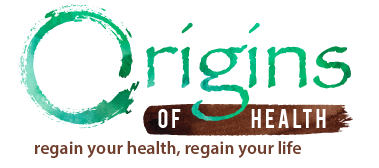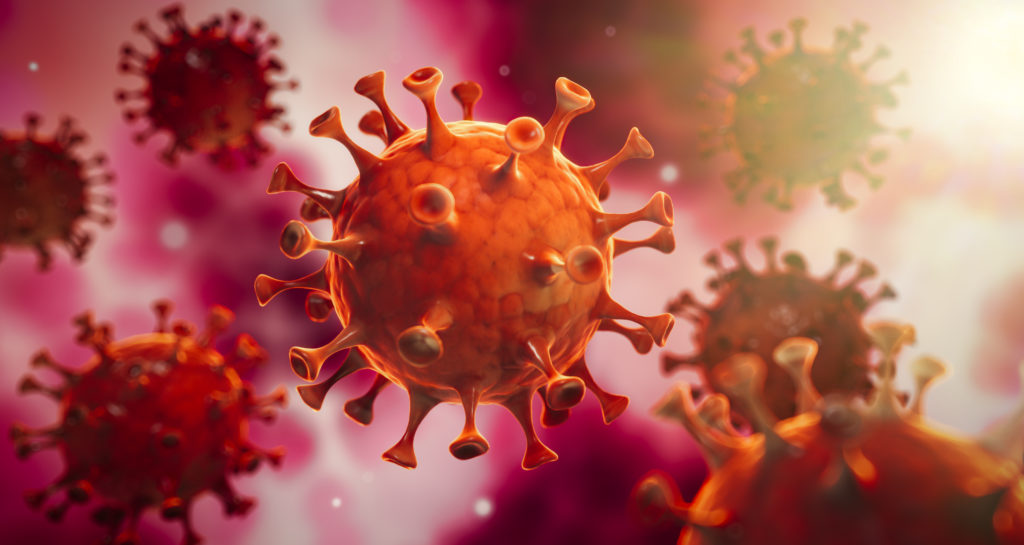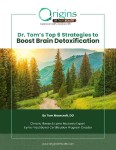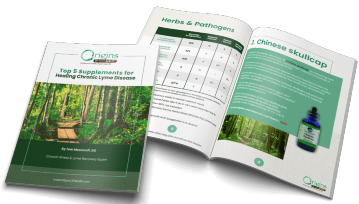Coronavirus COVID-19 & Tips to Stay Safe during the Pandemic
In January of this year, I was interviewed about how concerned we should all be about the emerging Coronavirus in an article called How to Protect Yourself from Coronavirus. Back then my recommendation was to remain calm and watch how things develop. At that time, there was no need for freak out if you lived in the United States. Aside from remaining calm, my #1 tip for preventing coronavirus as well as many other seasonal illnesses was “the best way to prevent transmission of viruses, including influenza and coronavirus, is practicing good basic hygiene and maintaining a strong, healthy immune system.”
The best way to prevent transmission of viruses, including influenza and coronavirus, is practicing good basic hygiene and maintaining a strong, healthy immune system.
- Wash your hands often with soap and water for at least 20 seconds.
- Avoid close contact with people who are sick.
- Avoid touching your eyes, nose, and mouth with unwashed hands.
This has not changed. As the Coronavirus, now called COVID-19 (Coronavirus Disease 2019), has spread, hysteria has worsened. The reality is, the current risk in the US is very low. This doesn’t mean you should dismiss the possibility of it getting worse and becoming a US issue, however it means you have time to prepare yourself.
As of February 29, 2020, the CDC website states: “For the general American public, who are unlikely to be exposed to this virus at this time, the immediate health risk from COVID-19 is considered low.
As of March 2, 2020, the CDC reports the following number of cases of COVID-19 on their website.
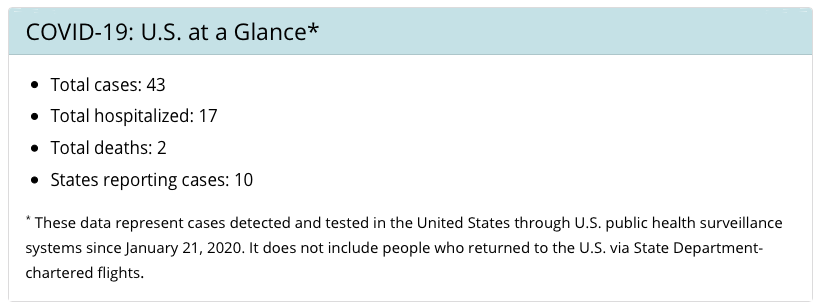 According to the WHO website: “People of all ages can be infected by the new coronavirus (2019-nCoV). Older people, and people with pre-existing medical conditions (such as asthma, diabetes, heart disease) appear to be more vulnerable to becoming severely ill with the virus.”
According to the WHO website: “People of all ages can be infected by the new coronavirus (2019-nCoV). Older people, and people with pre-existing medical conditions (such as asthma, diabetes, heart disease) appear to be more vulnerable to becoming severely ill with the virus.”
While the worldwide effects of COVID-19 are worsening, in the United States, we appear to have more time to prepare ourselves because our current risk is low.
What are the symptoms of Coronavirus?
Most symptoms associated with Coronavirus are mild and fall into the category doctors call flu-like, such as fever, joint and muscle aches, headaches, cough, sore throat, stuffy nose. Some patients may develop pneumonia, anything from mild to severe. In rare cases, acute respiratory distress, sepsis or even death may occur.
With over 83,000 cases worldwide, the Coronavirus is a significant global pandemic. However, there have been other similar outbreaks in the recent past, namely SARS in 2003 and MERS in 2015. While the new coronavirus has infected and killed more people than those outbreaks, its overall mortality rate is actually lower than these other two.
What can you do to decrease your risk of contracting Coronavirus?
As of this writing, for the vast majority of Americans, there is little to no risk of being exposed to Coronavirus. Both the WHO and CDC report that frequent hand-cleaning with alcohol-based hand rub or soap and water is the best way to prevent yourself from contracting Coronavirus.
Frequent hand-cleaning with alcohol-based hand rub or soap and water is the best way to prevent yourself from contracting Coronavirus.
Do I need to wear a mask?
If you are exposed to Coronavirus, the biggest issue is the sick person needs to be the one wearing a mask in order to have the best chance of protecting you. Unless you are a health care provider working directly with someone who has Coronavirus, a mask will not likely help you. Additionally, even for healthcare workers with true exposure risk, the commonly used N-95 masks are not able to filter out particles as small as the coronavirus, so basically, they don’t work. Now, would I wear one if I were going into a situation where I knew I was going to be exposed? YES! Just because they aren’t perfect, doesn’t mean I wouldn’t use common sense and try and decrease my exposure risk, but the reality is, N-95 masks are hard to use because they need to fit exactly and, because they are unable to filter small enough particles, coronavirus is likely to pass through.
As of March 2, 2020, The WHO website suggests the following in terms of what you should do:
- If you are healthy, you only need to wear a mask if you are taking care of a person with suspected 2019-nCoV infection.
- Wear a mask if you are coughing or sneezing.
- Masks are effective only when used in combination with frequent hand-cleaning with alcohol-based hand rub or soap and water.
- If you wear a mask, then you must know how to use it and dispose of it properly.
As of this writing, there is no vaccination for the coronavirus.
What can you do to minimize your risk of severe illness if you’re exposed?
One of the most important things we do know about this and many viral illnesses is that those with compromised or underdeveloped immune systems are usually at highest risk of severe problems or death.
It seems that anyone writing about natural products that may support the immune system and decrease your risk of severe illness from coronavirus is having their work pulled from the internet, so I’m not going to discuss any particular products that may help support your immune system. That’s really a discussion better had between you and your healthcare provider who knows your health history well.
What I can say is, there are simple things you can do every day to optimize your immune system’s ability to function and withstand exposure to any type of virus or bacteria.
Sleep
Most adults need 8-9 hours of sleep each night. Teens and young children need more. This is SLEEP time, not time in bed. Check out the National Sleep Foundation’s recommendations by clicking this link.
Some tips to improve sleep:
- Use blue light blocking lenses in the 2-3 hours before bed. Over-exposure to bluelight, primarily from screens and artificial light, disrupts your circadian rhythm (your natural sleep pattern).
- Turn off wifi at night. I can’t tell you how many people with insomnia I’ve shared this tip with who tell my they are sleeping better within a couple of nights. The easiest thing to do is buy a cheap timer and plug your wifi router into it. Have it turn off automatically around bedtime and go back on again after you wake up. Set it and Forget it! This is also another great way to help enforce your bedtime. No internet access after 10 pm.
- Keep your room cool (65-68 degrees Farenheit) and as dark as possible.
- Do something very calming before bed, such as a breath awareness exercise or use a biofeedback device, such as HeartMath Inner Balance, to improve your sense of calm and improve heart rate variability. Improving heart rate variability has been found to improve resilience to stress and infections.
Use a biofeedback device, such as HeartMath Inner Balance, to improve your sense of calm and improve heart rate variability. Improving heart rate variability has been found to improve resilience to stress and infections.
Eat
So many people are looking for a silver bullet, when what they need to be concentrating on is using their silver fork and looking at what they are putting into their mouths. Like the WHO states, many of the people who are most significantly impacted by Coronavirus have pre-existing medical conditions, such as heart disease and diabetes. Fortunately, minor dietary modifications can go a long way in decreasing the severity of chronic medical conditions, such as these.
There is so much information about diet available through a simple internet search and some of you may have very specific dietary needs, but there are some basic principles that will help most people improve their overall health and resilience to stress.
- If you didn’t make it, don’t eat it. AKA, get rid of all processed foods. Now this may seem like a difficult thing to do, but it’s really not. Shop the outer rim of the grocery store and go heavy on the produce. I generally recommend people eat as much veggies as they want, preferably 50% of those raw. Then, if you want to eat fresh fruit have half as much fruit as veggies. As an example, if you ate 1 cup of broccoli, then you could eat ½ cup of blueberries. The goal hear is to optimize the nutritional value of what you’re putting into your mouth and minimize the amount of simple sugars. Eat a rainbow of colors with veggies being number one.
- If you’re going to use flours or sweeteners, avoid the white ones. Better yet, avoid wheat flours and eat whole grains.
- If it comes in a box, don’t eat it. Processed foods often contain unnecessary amounts of sugar, salt, preservatives and other additives. Keep it simple. When in doubt, refer to Eating tip #1.
- Stop eating all that sugar. Sugar-laden sodas and candies are out. Most artificial sweeteners are chemicals that adversely affect how your brain processes hunger signals. Skip the simple sugars and the unnecessary chemicals.
- Most people should be drinking ½ ounce of water per pound of body weight. For example, if you weight 140 pounds, you should be drinking at least 70 ounces of water per day. Adding a little lemon or lime to your water can improve the flavor and helps alkalinize the body, further helping to optimize immune system function.
- Fasting is very effective at stimulating autophagy, a natural cellular recycling and intracellular pathogen clearing process. Intermittent Fasting is a practice where you restrict your daily eating window in order to optimize your overall health. It is most commonly practiced by restricting eating for 16 hours and eating for 8 hours. This is actually kind of cool because it helps you remember to sleep for 8-9 hours so it’s easier to fast for the entire duration. I generally practice intermittent fasting 4-5 days per week and enjoy a late breakfast with my family on the weekends. Start by restricting your eating window a few extra hours every day until you reach 16 hours of fasting. It may seem daunting at first, but it’s actually quite enjoyable once you get used to it.
Stress
Stress is a huge contributor to poor immune function. It also disturbs sleep. Take some time to chill out each day. Give yourself 10-15 minutes (or longer, if possible), of pure white space. Check out my article on MDRs – Minimum Daily Requirements for a more in-depth discussion of this.
The HeartMath Inner Balance program is also a great tool to improve your response to stress.
Whatever it is, find your own method for decreasing stress – breathing, prayer, yoga, meditation, walking, running, cooking, reading. It really doesn’t matter, it just needs to be chill, relaxation, downtime.
Exercise
Regular exercise has been associated with all kinds of health benefits. It improves resting heart rate and blood pressure. It improves immune function and increases longevity. Exercise reduces stress. It also improves mitochondrial function (mitochondria are the energy factories of the body). If you have a chronic medical condition, check with your healthcare provider which type of exercise is appropriate for you. In most cases, regular moderate exercise will improve your overall health, sense of well-being and help you start to reverse your chronic condition, all the while boosting immune functions.
Improvements have been seen with moderate exercise for 30 minutes 3-4 days per week.
So how do I really prevent Coronavirus?
If you haven’t guessed already, we don’t have any medications or vaccinations to treat Coronavirus. Like treatment of most viruses, doctors talk about “supportive” care. This basically means, we support your body when it’s failing with the goal of providing enough support for as long as you need to allow your body to get back on track.
Get off your butt and get started!
Stop worrying about Coronavirus and start doing something about it. Supportive care should be started BEFORE you get sick, not after. The great news is there are so many things you have control over, maybe not if you’re exposed to the virus or not, but definitely if you’re going to take the simple steps that can boost how your immune system functions.
Don’t try and make all these changes in one day. Start with one per week. Cut out the soda, then get some block blocker glasses and use them at night. A week later, start turning off the television an hour earlier. Then start getting up and going outside for some fresh air first thing in the morning. If you haven’t been exercising much, start taking a short walk every day.
Whatever you choose to do, make it a habit, something that you do consistently. It’s better to do 10-15 minutes of health supporting activities every day, than 2 hours once a week. The key is to create a new health habit that is easy to incorporate each day.
At the moment, it doesn’t look like most of us in the United States will be at risk for Coronavirus exposure. This may change down the line. Many more of us will be exposed to influenza as well as common cold viruses. The tips discussed above can help you be more resilient to any of these viruses.
Your body has an amazing self-healing and self-regulating system. It does so much to keep you healthy and asks just a little in return. Do yourself a favor and provide your body with the fuel and rest it requires to function at its highest level.
What’s going to happen next?
The Coronavirus has been spreading across the globe. Scientists are working to stop the spread, improve diagnostic tests and come up with an effective treatment. It’s impossible to predict what is next, however you can keep up to date on what’s going on by checking out the CDC and WHO websites. I’ve included their links below.
Currently the risk in the US is low. You have time to prepare in the event it begins to spread in the US.
If you’re not doing it already, start washing your hands with soap and water regularly. If you cough, do it into the crook of your elbow so fluid particles are not spread across the room to others. Start incorporating daily health habits that naturally support your immune system. This will not only help you if you come in contact with a virus, such as Coronavirus, but it will improve your overall health and well-being well into the future.
Simple tips are often overlooked because they are exactly that – simple. Start with the simple things and let go of the worry over Coronavirus. Keep up to date, but don’t freak out, rather put that energy to optimizing your health starting now.
CDC’s Coronavirus resources: https://www.cdc.gov/coronavirus/2019-ncov/summary.html#risk-assessment
WHO Coronavirus resources: https://www.who.int/health-topics/coronavirus
OK, I’m not your doctor, but what supplements are in my family’s seasonal immune support toolbox?
Many people are vitamin and mineral deficient today. Making sure we boost up levels of certain key nutrients can help us give our bodies the best chance to remain strong in the face of viral exposures.
Here’s a breakdown of some key nutrients and immune support products I have on hand at home.
Vitamin C
Many doctors recommend intravenous vitamin C (IVC), a service we provide at our office, however this is not always easily available. High dose IVC can quickly turn around acute viral-type illnesses.
Alternatively, vitamin C 2,000 mg two times a day is a good baseline dose to boost immune function. Vitamin C can lead to loose stools, so start low and slowly work up.
Vitamin D3
This vitamin is one where there is a lot of misinformation. Many people are worried about taking too much based upon how strong the capsules are. I hear so many people saying 5,000 units is too much, when in reality what you need to know is what you blood levels are. At most labs, below 30 is too low and this is the conventional, bare minimum level. Vitamin D levels need to be well above 30 for optimal health.
There is a lot of varying opinions on what an optimal level of vitamin D is. Check out my article on vitamin D for more info. In the winter months, especially when trying to fight off acute viruses, many doctors use the “Vitamin D Hammer.” I’ve seen several versions of this. The most common one is using 50,000 units of vitamin D daily x 3 days starting at the first sign of illness. This dosage is for a typical adult and would need to be adjusted for a child. Depending upon their size, I will often recommend 20-30,000 units daily for 3 days. In this timeframe, it is nearly impossible to cause any toxicity.
On a regular basis, most people would do well and not have side effect on 3-5,000 units of vitamin D daily. As I mentioned, it’s more important to know your blood levels rather than making an assumption, however these levels are generally safe. Vitamin D2, often used in cheap vitamin formulations and fortified foods, is about half as effective as vitamin D3 and I do not recommend using this.
There’s a great review of Vitamin D and it’s role in immune function published in Clinical Therapeutics where they discussed the “ability of vitamin D to enhance and improve an organism’s clearance of disturbing and stressful agents and to elicit… [an] anti-inflammatory response.” Vitamin D has been shown to have a role in autophagy, the process by which cells recycle and remove intracellular pathogens.
Selenium
There have been reports that the areas of China where many of the recent corona-type viruses have come from are selenium deficient. Selenium, most commonly gotten from a well rounded diet, is a powerful antioxidant that is associated with immune function. Low levels are associated with lower levels of immune function and higher levels of this nutrient are associated with improved immune function. See “The influence of selenium on immune responses” on PubMed.
The best way to get selenium is through your diet. Brazil nuts are well known to have high levels of this nutrient. Oysters, eggs and sunflower seeds are also good dietary sources of selenium. Yellow fin tuna and halibut are quite high in the nutrient, however many people are minimizing the intake of these fish due to concerns of potential heavy metal exposure. The National Institutes of Health (NIH) has an article on selenium that summarizes many of the food sources for this nutrient.
 From the NIH Dietary Supplement Label Database
From the NIH Dietary Supplement Label Database
Probiotics
At the core of healthy immune function is a happy, healthy, well functioning gut microbiome. The microbiome is the community of bacterial, viruses, fungi and other organisms that live in the human gastrointestinal tract starting with the mouth and going through the entire colon. Eating a well rounded, healthy diet, sleeping an adequate amount each night, minimizing alcohol consumption and exercising regularly are ways to naturally optimize your microbiome. Another important aspect of microbiome health is supplementing with probiotics when you’re under stress, acutely ill and especially after taking prescription or herbal antimicrobials. For most general immune support purposes, I prefer a strain specific formulation of lactobacilli and bifidobacteria that guarantees these bacteria actually get through the stomach acid and into the small intestine where they do their work. My favorite probiotic for this application is Theralac from Master Supplements
Given that the microbiome actually starts in the mouth, a minimum of twice daily toothbrushing and oral care with a natural tooth paste or powder is highly recommended.
The other end of the tube, so to speak, is the rectum where stool comes out. Immune health is directly tied to bowel health and especially regular bowel movements. For most people 1-2 bowel movements a day are optimal. Not having a bowel movement at least every other day and really best once a day, is a recipe for poor detoxification and immune function.
Probiotics, fermented foods, and vitamins and minerals, such as C and magnesium, can help regulate bowel function and optimize your immune system’s functional capacity.
Herbal Antimicrobials
There are tons of herbal antimicrobials available. Bio-Botanical Research has an excellent product called Biocidin. It is a broad spectrum anti-microbial and it’s available in a throat spray. I often use this while traveling to help protect myself from whatever I’m exposed to. They also have an immune support product called Olivirex. This is a good bet during cold and flu season.
Natural Immune Support
Many natural immune support products are available. Researched Nutritionals has some of the best research backed supplements on the market. Their Transfer Factor Multi-Immune provides comprehensive immune support and has been shown to promote healthy immune system function, including natural killer cells, macrophages, and T-cells.
Many other herbals
There are many other companies that make exceptional herbal immune support and antimicrobial products. In addition to those listed above, some of my favorites include Beyond Balance, Byron White, Supreme Nutrition Products. It’s best to work directly with your healthcare practitioner who is trained in functional and natural approaches to healing to create an individualized health supporting program. My recommendation is to start now before you’re exposed to a virus.
What if I start getting sick?
If you develop flu-like symptoms, call your provider to see if you need to go in and be evaluated or if it’s better to stay home and rest.
Follow these tips to minimize your risk of severe illness if you’re exposed to Coronavirus.
Wash your hands often with soap and water for at least 20 seconds.
Avoid close contact with people who are sick.
Avoid touching your eyes, nose, and mouth with unwashed hands.
Sleep 8+ hours per day
Eat a rainbow of veggies and fruits and cut the junk out of your diet
Stay well hydrated
Exercise and get fresh air daily
Take time to chill
Optimize your nutrient levels, especially vitamin D
START NOW and give yourself the best opportunity to resist whatever you’re exposed to!
I wrote this article to help you sort through the current hysteria and give you some ideas for optimizing your immune system in the event you are exposed to this or any other virus.. Things will likely continue to change so stay up to date by checking out the CDC and WHO websites. If you develop any symptoms or have any questions or doubt, call your healthcare practitioner immediately.
